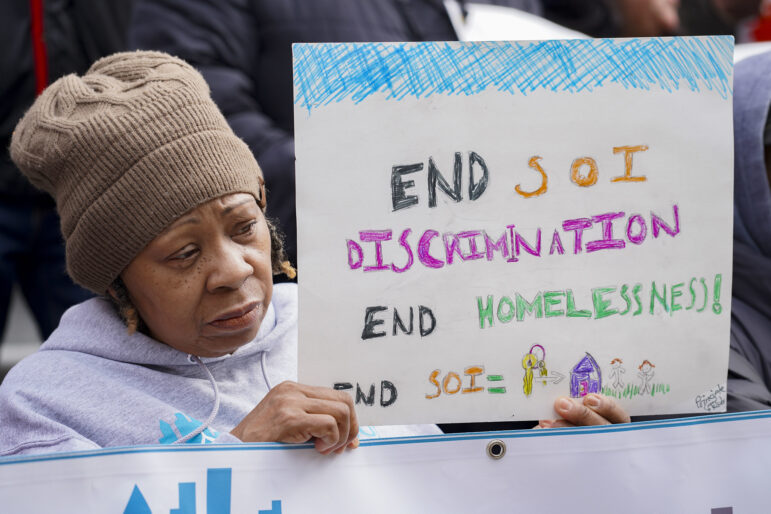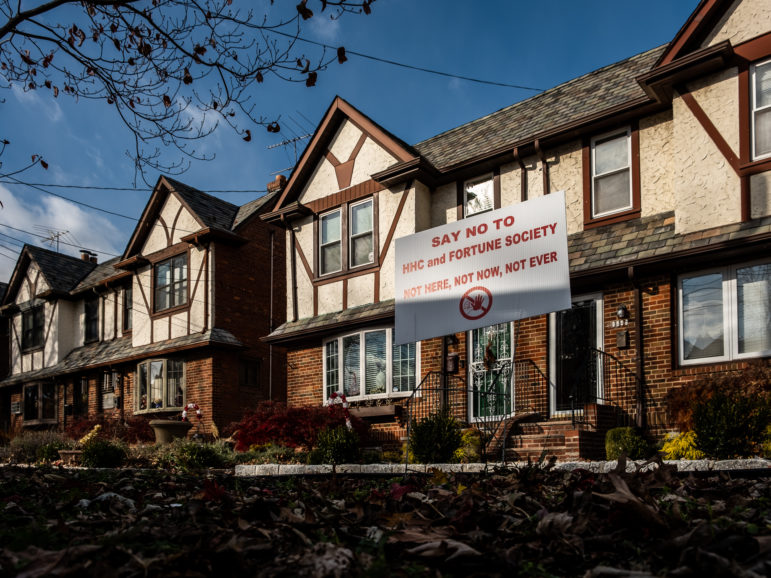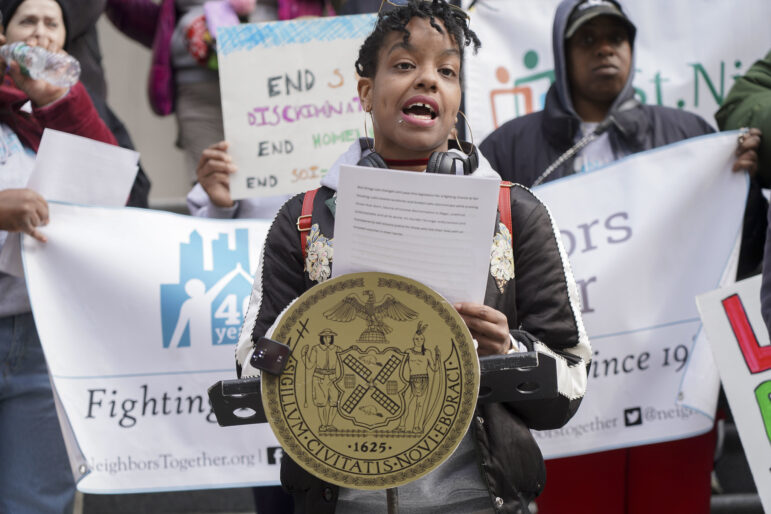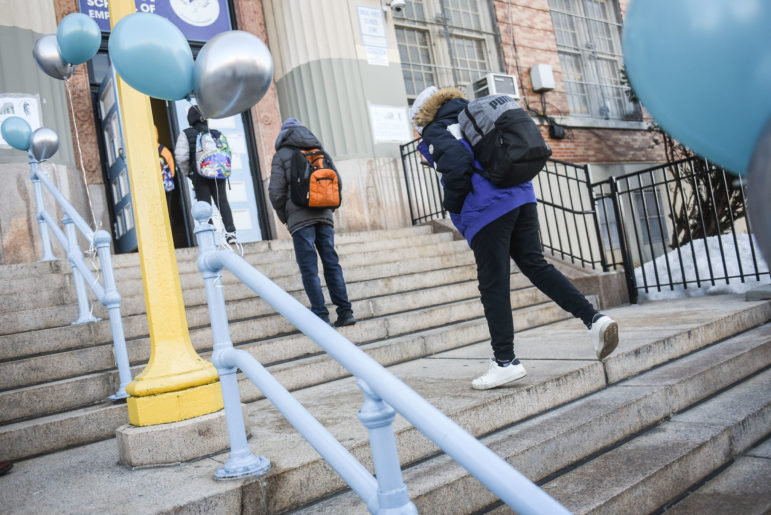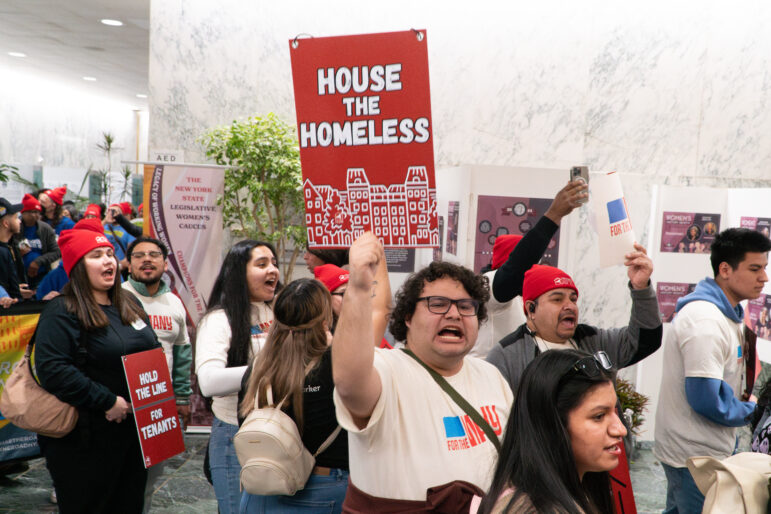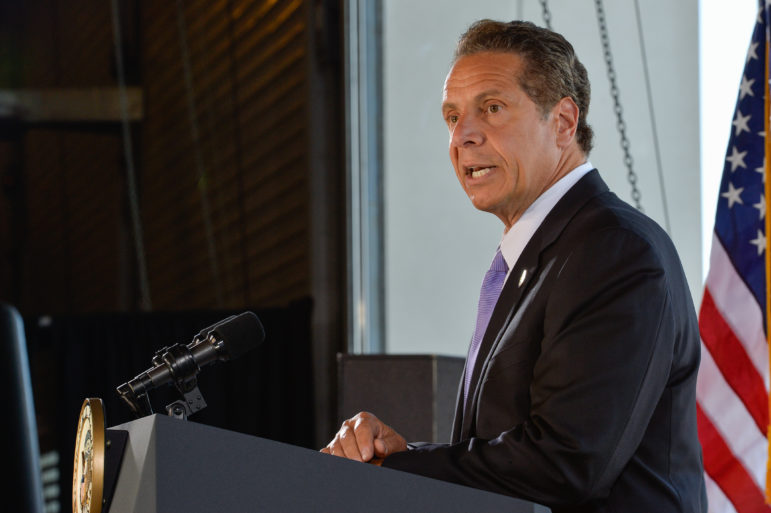
Office of the Governor
Gov. Cuomo's big promise on affordable housing has lacked particulars.
As Albany wraps up its legislative session, housing advocates are outraged that no plan has yet been drawn up for $2 billion dollars in the state budget designated for affordable housing initiatives.
The funds are part of Cuomo’s $20 billion initiative, announced in January, to build or preserve 100,000 units of affordable housing in five years and construct a total of 20,000 units of supportive housing for the formerly homeless over 15 years.
Considering those ambitious targets, this year’s budget included less than one might expect: $2 billion to be spread over five years.
What’s more, details on how those funds would be used were to be spelled out not via legislation but through a Memorandum of Understanding (MOU)—a tool that political watchdog groups say leads to closed-door negotiations and, frequently, delays.
“The same advocates who were thrilled in January are left wondering whether Cuomo was ever really serious about housing the homeless, or whether this was all just a PR stunt designed to one-up a political rival he’s obsessed with overshadowing,” wrote Mary Brosnahan, director of the Coalition for the Homeless, in a Daily News op-ed on Wednesday.
Cuomo’s January announcement followed months of wrangling between the governor and the mayor, who ultimately could not agree to a new deal to jointly build supportive housing. Some advocates saw Cuomo’s affordable housing proposal, while welcome, as an attempt to trump Mayor de Blasio, who in November committed to build 15,000 units of supportive housing in 15 years on his own (some of which will count toward his target of 200,000 new or preserved units of affordable housing).
In the past few weeks, advocates and elected officials have called on Cuomo to complete the MOU. Assembly housing chair Keith Wright called for $100 million of the funds to go to NYCHA for capital repairs (the state budget currently offers no support to the public housing authority), while the Coalition for the Homeless demanded resources for the development of supportive housing.
Gotham Gazette reports, however, that negotiations over the MOU are knotted up with a number of other controversial housing issues: the Republican-dominated Senate is tying the MOU to a revival of 421-a, the tax credit for developers who build affordable housing. The credit expired last year when Cuomo insisted that the legislation include prevailing wages for construction workers, but labor unions and developers could not reach a deal. The Democrat-controlled Assembly, meanwhile, says any reformed version of 421-a must be tied to strengthening regulations for rent-stabilized and rent-controlled apartments.
“Making $2 billion in desperately needed housing funds contingent on an MOU between the infamous ‘three men in a room’ was a bad policy from the get-go, and arguably a violation of state budget law,” said State Senator Elizabeth Krueger, representing Manhattan’s east side, in a statement sent to City Limits. “Now it seems like we might not even get a deal. Our government made a commitment to tens of thousands of the neediest and most vulnerable New Yorkers—it’s time to deliver.”
Though little progress is expected on legislature-wide deals to reform 421-a or rent regulations, the Assembly and its committees have sought to make a statement by passing a number of tenant protection bills. This year, the Assembly approved by a 90 to 47 vote a bill that would prohibit the adjustment of preferential rents, addressing a loophole that allows landlords to raise the rent of rent-stabilized apartments beyond the levels allowed by the Rent Guidelines Board. The housing and codes committees passed a bill that would prohibit vacancy decontrol, which allows rent-regulated apartments to go market-rate once the legal rent or tenants’ income reaches a certain threshold. A bill that would provide operating subsidies to achieve deep affordability in low-income housing was approved by the housing committee and referred to the committee on ways and means for further examination.
Assemblymember Linda Rosenthal also pushed for bills that would change the procedure for assessing rent increases for rent-controlled apartments and protect tenants’ rights by requiring the Department of Homes and Community Renewal to look back farther into a landlords’ rent registration history when the tenant suspects they’ve been unfairly charged.
“There are so many important issues in between the years when [rent regulation] laws are enacted and expired…We continue to push them forward, and make a statement basically,” says Rosenthal. “[It’s] important to show the tenant movement, too, that we are not giving up. We are continuing to fight…and will continue to do so until we have a senate that will pass a companion bill.”
The Assembly will not vote on whether the state should eliminate the cap on Floor Area Ratio, a proposal championed by de Blasio that, with approval from City Council through the Uniform Land Use Review Procedure (ULURP), would allow for much larger buildings than are currently permitted under any zoning designation. While the mayor believes the proposal would boost the development of affordable housing by allowing additional density, critics say the bill could have a detrimental impact on the character and infrastructure of already dense neighborhoods.
“I don’t think the impact of that has been fully analyzed and digested,” says Rosenthal.


